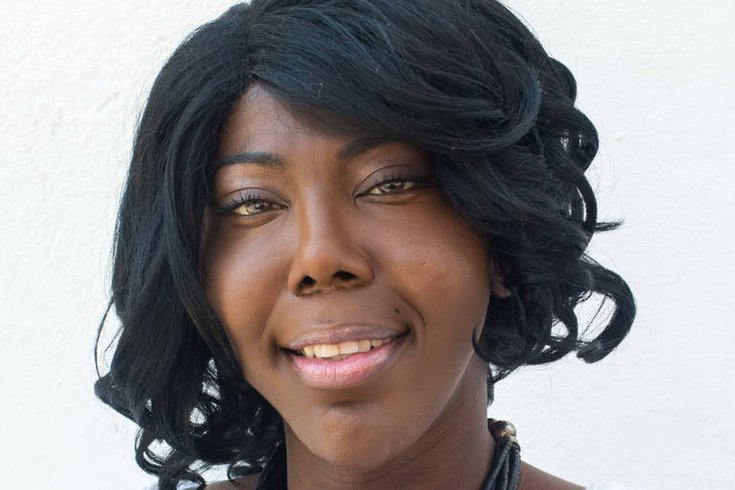
February 08, 2023
 Courtesy of/Kendall Stephens
Courtesy of/Kendall Stephens
Kendall Stephens, a transgender woman and activist, was attacked outside of her Point Breeze home in August 2020. On Tuesday, one of the attackers, Tymesha Wearing, pleaded guilty to aggravated assault and other charges and was sentenced to house arrest and community service.
A Philadelphia woman was sentenced to house arrest and community service in connection with an attack she waged against a transgender woman in South Philadelphia in 2020, the District Attorney's Office said on Wednesday.
Kendall Stephens, a transgender activist, was beaten at her home in Point Breeze by Tymesha Wearing, 36, on Aug. 24, 2020. Wearing had punched Stephens in the mouth outside of her home, then pushed her way into Stephens' home, where she continued to punch her in the head before knocking her to the ground and saying "You are a man, you deserve this."
Wearing at the time was with two other people who have not been identified or arrested. The District Attorney's Office said those people shouted anti-trans slurs at Stephens during the assault. Another assailant allegedly forced herself into the house and hit Stephens twice in the head with a wooden planter. Stephens suffered injuries including two dead teeth, a concussion, a broken nose, a swollen face and bruised ribs after the attack.
Wearing also pleaded guilty to a hate crime, which is a summary offense under city law. Pennsylvania's hate crime statute does not include people who have been victims of crimes due to their sexual orientations or gender identities.
"Nearly three years ago, Kendall Stephens endured a frightening crime that was intended to demean and silence her," District Attorney Larry Krasner said in a release. "Instead, Ms. Stephens continues to speak out loudly on behalf of other queer victims of violent crime — all while pursuing graduate studies. This criminal case is now closed, but Ms. Stephens will never stop fighting for the respect, support and protections that queer people deserve in order to live safely, freely and joyfully."
Stephens has spoken frequently about her attack over the last several years, publishing details in a blog post for the Human Rights Campaign in October 2020. At the time, the activist was a junior at Temple University studying public health.
She spoke to the Human Rights Campaign about her experiences with Philadelphia police, whom she said initially refused to arrest one of the assailants even though the woman was continuing to hurl anti-trans slurs at Stephens as she was walking back to her own home down the street.
Stephens said that her experiences were typical of transgender victims of violence. The blog post was published a few weeks after Krasner charged Wearing in connection with the attack.
After Wearing pleaded guilty to aggravated assault and conspiracy, Judge Nicholas Kamau sentenced her to 11.5 to 23 months of house arrest with electric monitoring, with no parole eligibility until 18 months of home confinement. Wearing has also been ordered to perform 120 hours of community service, write a letter of apology to Stephens and complete a court-mandated anger management program.
Stephens publicly forgave Wearing in a victim impact statement she read during the court hearing on Tuesday. In her statement, Stephens pointed to the larger issue of hate crimes and the lack of protection given to LGBTQ+ victims of hate crimes under Pennsylvania law.
"I want to start by saying that you are my sister and neighbor, and I forgive you," Stephens said. "I'm still hurt because of your actions after the fact and how this matter played out in the court of common opinion years before we arrived at this conclusion in a court of law. I've been in spiritual, emotional, and cognitive purgatory ever since. People took sides. She said things such as, 'Trans people don't exist, so her story and her pain don't exist.' I could never truly claim a sense of survivorship because I could never exercise my right to be the victim of a hate crime."
Stephens went on to say that, although Philadelphia law recognizes the attack as a hate crime, Pennsylvania's hate crime statute does not include crimes against people due to their sexual orientation or gender identity, which she said makes her an "unworthy minority in the eyes of the law."
As violence against transgender people has nearly doubled over the past four years, Black trans women are the most at risk, CBS News reported. Several Black transgender women have been the victims of homicides in Philadelphia in recent years.
In December, Shahere "Diamond" Jackson-McDonald was fatally shot at her Germantown home on Thanksgiving. Dominique Rem'mie Fells was found dead in the Schuylkill River in June 2020. Michelle "Tamika" Washington was fatally shot in North Philly in 2019 and Shantee Tucker was killed in Hunting Park in 2018.
"I hope this is a wake-up call to everyone involved, especially our state lawmakers," Stephens said. "This season of hell is over."